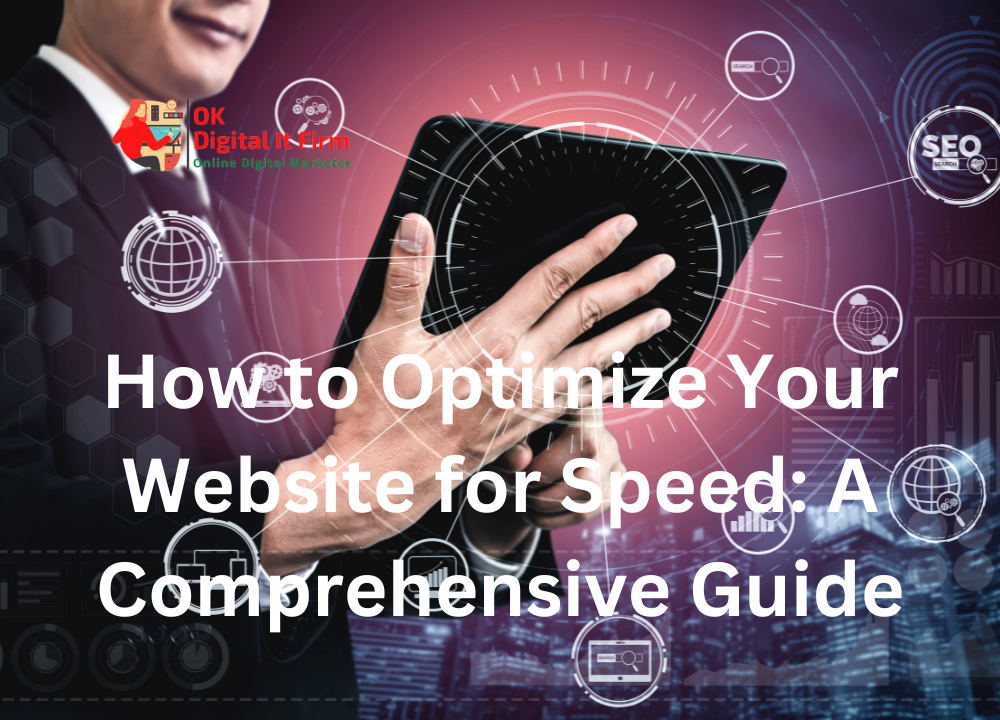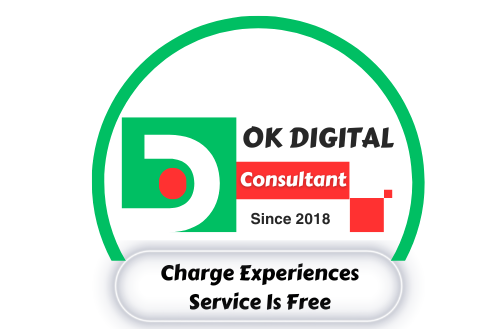optimize your website for speed, optimize your website, speed your website, how to optimize your website, how to optimize,
In today’s digital age, website speed is paramount. A slow-loading website can deter visitors, increase bounce rates, and ultimately harm your search engine rankings. In this article, we’ll explore the essential steps to optimize your site for speed, ensuring a seamless user experience that keeps visitors engaged and coming back for more.
Table of Contents
Introduction of How to Optimize Your Website
Website speed is the silent cornerstone of online success. Slow-loading websites not only frustrate visitors but can also lead to missed opportunities and revenue loss. In this article, we will delve into the techniques and strategies that can help you optimize your site for speed, ensuring a seamless user experience.
Why Is Website Speed Important?
Website speed impacts various aspects of your online presence, including user satisfaction, search engine rankings, and conversion rates. Users expect websites to load quickly, and search engines like Google use speed as a ranking factor. Moreover, faster websites are more likely to convert visitors into customers or subscribers.
Measuring Your Website’s Speed
Before you begin optimizing your site, it’s essential to measure its current speed using tools like Google PageSpeed Insights or GTmetrix. These tools provide valuable insights into what aspects of your site need improvement.
Choosing the Right Hosting Provider
Your hosting provider plays a crucial role in your site’s speed. Opt for a reputable hosting provider that offers fast and reliable servers. Shared hosting may save costs, but it can negatively impact speed during peak traffic periods.
Optimizing Images and Graphics
Large images and graphics can slow down your website significantly. Use image compression tools and choose appropriate file formats (JPEG, PNG, or WebP) to reduce image size without compromising quality.
Minimizing HTTP Requests
Every element on a webpage, including images, scripts, and stylesheets, generates HTTP requests. Minimizing these requests by combining files and using sprites can enhance your site’s speed.
Leveraging Browser Caching
Browser caching stores static files on a user’s device, reducing the need to re-download them upon revisiting your site. Configure caching headers to improve load times for returning visitors.
Compressing and Minifying Code
Compressing your website’s code and minifying CSS and JavaScript files can significantly reduce load times. Plugins and tools are available for various content management systems to automate this process.
Implementing Content Delivery Networks (CDNs)
CDNs distribute your site’s content across multiple servers worldwide, reducing server response times and ensuring fast loading for users, regardless of their location.
Mobile Optimization
With the increasing use of mobile devices, optimizing your site for mobile speed is critical. Implement responsive design, reduce image sizes, and use mobile-friendly plugins.
Reducing Server Response Time
A slow server response time can hinder your site’s speed. Optimize your server configuration, database queries, and use server-side caching to improve response times.
Using Lazy Loading Techniques
Lazy loading delays the loading of below-the-fold images and content until the user scrolls down, reducing initial load times and improving the user experience.
Optimizing CSS and JavaScript
Clean up unnecessary CSS and JavaScript code, and prioritize critical rendering paths to ensure your site loads faster.
Regularly Update Your Content Management System (CMS)
Outdated CMS versions may contain vulnerabilities that can impact speed and security. Regularly update your CMS and plugins to benefit from performance improvements and security patches.
Pros:
- Improved User Experience: A faster website provides a smoother and more enjoyable experience for your visitors. They can access your content quickly, reducing frustration and increasing user satisfaction.
- Lower Bounce Rates: Fast-loading pages lead to lower bounce rates, as visitors are more likely to stay and explore your site rather than leaving due to slow loading times. This can result in higher engagement and conversions.
- Better SEO Rankings: Search engines like Google consider website speed as a ranking factor. By optimizing your site for speed, you can potentially improve your search engine rankings, leading to more organic traffic.
- Competitive Advantage: In a competitive online landscape, a fast website can set you apart from your competitors. It demonstrates professionalism and reliability, which can attract and retain customers.
- Mobile Friendliness: With the increasing use of mobile devices for browsing, a fast website is essential for catering to mobile users. Mobile-friendly sites often perform better in search results and reach a broader audience.
Cons:
- Costs and Investments: Some website speed optimizations may require financial investments. For example, upgrading to a faster hosting plan or using a content delivery network (CDN) can incur additional costs.
- Complexity: Implementing certain speed optimization techniques, especially for complex websites, can be challenging and require technical expertise. This complexity may deter some website owners.
- Risk of Over-Optimization: In an attempt to make a website faster, some individuals may over-optimize, which can lead to issues like broken functionality, reduced image quality, or a poor user experience.
- Ongoing Maintenance: Website speed optimization is not a one-time task. It requires ongoing maintenance and monitoring to ensure that your site continues to perform well as you add new content or features.
- Potential Compatibility Issues: Some speed optimization methods, such as minification and compression, may not be compatible with all website elements or plugins. This can lead to compatibility issues that need to be resolved.
Conclusion Of How To Optimize Your Website

Website speed is a critical factor in attracting and retaining visitors. By following these optimization techniques, you can enhance your site’s speed, improve user satisfaction, and boost your search engine rankings. Remember, a fast website is a successful website.
FAQs Of How to Optimize Your Website:
1. How does website speed affect SEO rankings? Website speed is a confirmed ranking factor by search engines like Google. Faster-loading sites tend to rank higher in search results.
2. What is the ideal loading time for a website? Ideally, a website should load in under 2 seconds to provide an excellent user experience.
3. Can I optimize my site for speed without technical expertise? Yes, there are user-friendly plugins and tools available that can help you optimize your site without advanced technical knowledge.
4. Are CDNs necessary for small websites? CDNs can benefit websites of all sizes. They can improve loading times and handle traffic spikes effectively.
5. How often should I update my CMS and plugins? It’s recommended to update your CMS and plugins as soon as updates are available to ensure optimal performance and security.
